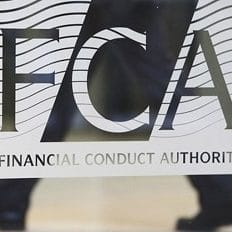
FCA: SRA caps mirror those of financial regulator
Law firms have been told that moves to switch regulators to avoid fee caps being introduced for handling financial services mis-selling claims will be closely monitored.
The Solicitors Regulation Authority (SRA) said it would be monitoring the risks of “regulatory arbitrage”.
The issue was raised by the Legal Services Board (LSB) as it approved the SRA’s application to introduce the caps, mirroring those already applied by the Financial Conduct Authority (FCA) to claims management companies.
This means maximum fees ranging from £420 for claims worth less than £1,500 to £10,000 for those worth more than £50,000.
There will be an exception for complex or novel cases, where law firms will need to obtain approval from the SRA on a case-by-case basis to charge more.
The rules will also introduce new information transparency requirements for solicitors handling financial services claims.
Section 33 of the Financial Guidance and Claims Act 2018 creates a statutory duty on the FCA and the SRA to make rules that provide an “appropriate degree of protection for consumers against excessive charges” by providers of claims management activities in financial services.
The duty does not extend to either the Bar Standards Board (BSB) or CILEx Regulation Ltd (CRL) and in a decision notice approving the proposed rule changes, LSB interim chief executive Richard Orpin said it had highlighted the potential risk of some firms switching to one of them to avoid the FCA and SRA rules.
“The SRA responded that the [Act] does not preclude the BSB or CRL from making rules for this area and that in engagement with colleagues at the BSB and CRL it had been suggested that both bodies would be interested to see the SRA’s final position and to potentially consider making equivalent rules.
“The SRA further explained that its day-today working relationships with both regulators will enable the SRA to monitor risks of arbitrage in the future.”
These relationships are underpinned by memorandums of understanding, which include a ‘switching protocol’.
Mr Orpin said the SRA was unable to “meaningfully quantify expected numbers” of applications for exemptions at this stage and set out its expectation that the regulator would “build its understanding over time around what constitutes reasonable charges” in exempt cases.
The SRA “explained that the extent to which a law firm may rely on a bandings exemption is shaped by the financial service sector where statutory redress schemes and the courts in particular will determine where and how a new area of claim, or a particularly complex claim area, is best heard”.
The SRA would also monitor whether this case-by-case approval was the right mechanism, Mr Oprin added.
The SRA told the LSB that the new rules would come into force 42 days after its approval, meaning 26 July.
Last month, the SRA issued a warning notice about the conduct of bulk financial product mis-selling claims, while the Financial Ombudsman Service proposed that law firms and claims management companies making volume complaints on behalf of clients will be charged £250 per case.















Leave a Comment